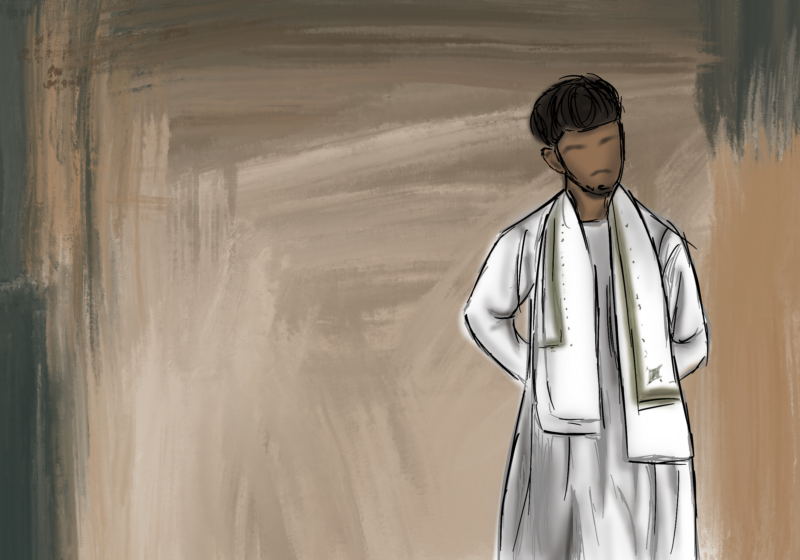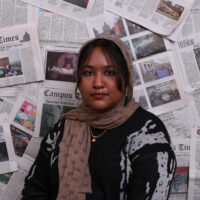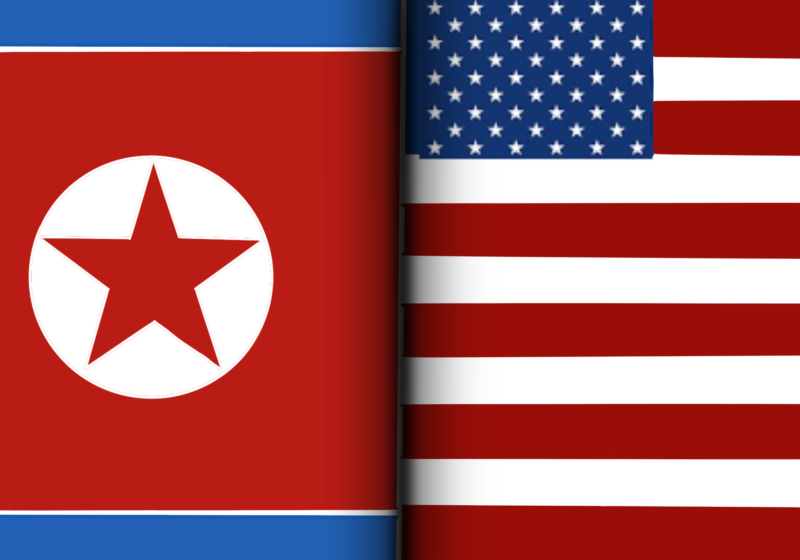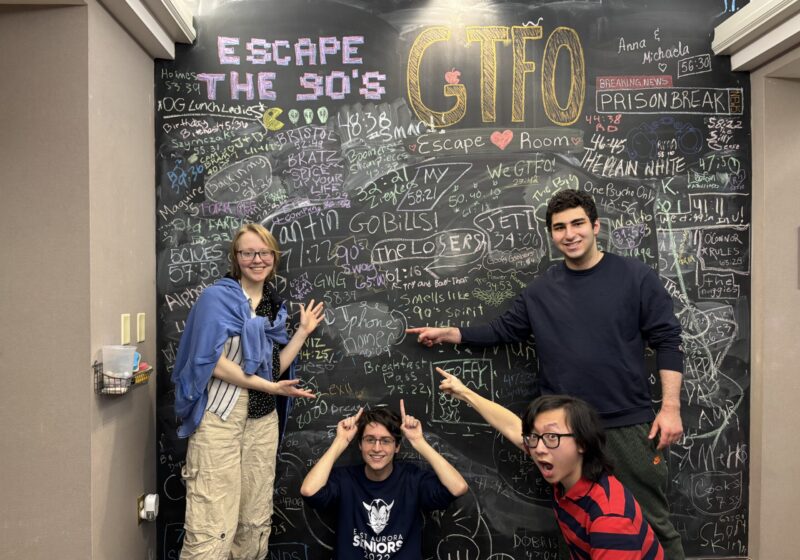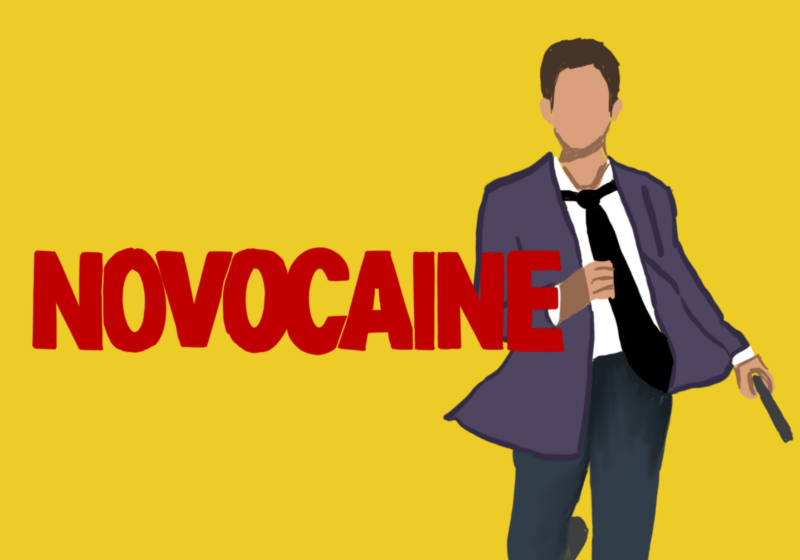“Dunya” is the newest studio album by Sudanese-Canadian singer Mustafa Ahmed, also known as Mustafa the Poet. Mustafa made himself known as a songwriter, collaborating with many popular artists such as Daniel Caesar, Weeknd, Omar Apollo, and Camila Cabello. Aside from his collaborations though, Mustafa struggled with writing his own music. “Dunya,” which was released last month on Sept. 27, showcases his skills in poetry and songwriting. His album makes one fall in love with his low, melancholic, yet melodic voice as he sings about religion, culture, his roots, and so much more.
I first learned about Mustafa from artists I’d have on queue a lot, like Omar Apollo and Daniel Caesar. On Daniel Caesar’s album “Never Enough” (2023), Mustafa sang on the track “Toronto 2014,” which quickly became my favorite track on the album. I listened to some of his own songs after that, and I really liked “Air Forces” from his first album “When Smoke Rises” (2021). What I loved from his work was the quiet acoustic guitar with his low voice singing these poetic lyrics, and the stories he would tell through his work.
When I first saw the new release of “Dunya,” I could already tell it would echo his love for his culture through his music. The album cover itself is him in traditional Sudanese attire putting on kohl eyeliner, a tradition for Muslims to wear. A quick glance through the tracks reveals Arabic words throughout the playlist. “Dunya” itself in Arabic means the life we live in right now — implying not just life itself, but the struggles, joys, and flaws that come along with living this life.
Mustafa starts his album with the first track “Name of God,” perhaps a reference to how Muslims start their prayers and many of their everyday activities with the name of God. This placement was intentional and had layers to it, which I appreciated. Mustafa’s soft and low voice amidst the gentle acoustics of the guitar soothes the listener’s ears. He sings: “Whose lord are you naming when you start to break things?” He raises the question — with all the actions people do in life, is God in their mind? Mustafa explains in an interview with Stereogum that he never really equated the name of God with beauty; he saw so much violence happening in his community even though these same people would pray next to each other. It was an ironic situation that begged the questions: Who are they doing this for? And what place does religion have in his community, in his life? At the end of the piece is a dialogue between him and his cousin Mahmoud. The last few words he says are, “Insaan wa Muslim,” which translates from Arabic to hHuman and Muslim” — a small snippet but a cornerstone to his identity.
The second track of “Dunya” is “What Happened, Mohamed?” Growing up in the Toronto housing projects, Mustafa recounts beautifully of the horrors of gang violence and how it has affected his community. He sings, “And maybe you thought it would take it away, but all that it did was platform the pain,” referring to guns, drugs, and the things he saw people around him do to work against their pain and their troubled upbringing. This song references the tragic death of his older brother Mohamed who was shot and killed in a car in downtown Toronto in 2023. This death is what inspired Mustafa to turn to religion more — to be connected with Islam not just through the fact that he was brought up in a Muslim family, but also connect with his faith on a spiritual level, between him and God, embarking on his own spiritual journey. We can also see this reflected throughout “Dunya.”
The third song on the album is “Imaan,” which means faith in Arabic, and tells the story of the balance between Imaan and Dunya — faith and life. I really enjoyed the beginning acoustics infused with the traditional Arab music. This song is about finding religion and the balance between faith and life: “You say praying isn’t easy. And all the ways you need me are from God.” The accompanying music video focuses on a young woman’s life, where in the night she goes out and takes off her headscarf, yet she still finds the time during the day to pray and go to the mosque. Even though Mustafa is a Muslim man, he portrays the struggles of being a Muslim woman in the modern day very well. He shows that it’s a journey for everyone, in a purely nonjudgmental way.
“What good is a heart” and “SNL” are the fourth and fifth tracks of “Dunya,” where Mustafa continues his reflection on the violent past he is trying to leave behind. The track “SNL” in particular is unique in the way he sings these obviously gang-related stories and terms that you would hear in rap songs: in his trademark low and melancholy voice, even adding a melodic “la la la la la” in an almost lullaby way, creating an interesting contrast between the lyrics and how it is sung. The rapper JID has a verse towards the end of the track, and the juxtaposition of their voices is unique — I felt that they went well together since JID also has a low and quiet tone.
The sixth song on the album is “I’ll go anywhere.” You hear children in the background singing in Arabic and the strums of the oud, an instrument similar to the lute used in Arab countries. The oud is heard in many songs on this album. In an interview with AnOther magazine, Mustafa says this instrument takes him back to when he grew up in Sudan. When looking at the lyrics, “You” and “His” are capitalized, meaning he’s referring to God when he says, “I’ll go anywhere to bring You closer to me” and “I questioned Your ways … why my heart always swayed?” This shows how he had doubts and his faith wasn’t always unwavering. These doubts stem from the negative events that had been happening in his life, asking what many people would ask in times of distress: Why would God do this to me or to them? However, he realizes he wants to understand rather than feel more sorrow. He sings, “And You know I was always ashamed. Not prepared for His trial or my trials in the grave.” In this song, Mustafa delves more into his spiritual journey to grow closer to God, especially after his brother’s passing. He would go anywhere, he would do anything to learn more, become a better person, and be prepared for his “trials in the grave.”
“Beauty, end” is a pretty slow song with minimal acoustic instrumentation. It felt more like a story or poem than a song, and you can really see from the lyrics why he holds the name “Mustafa the Poet.” He says, “They broke every rule … Soon I would hold their limbs.” This is another reference to his past: he witnessed firsthand the unfortunate deaths of the people around him who grew up living in violence.
I really liked the next track “Old Life.” Again, I really loved the acoustics with the layered strings of the guitar and oud, now paired with percussion. Though it sounds like he is talking about his past love — if you’re familiar with Mustafa enough — you’d know he is personifying his past. He looks back on what he left behind — “I look back at ‘09 when my street was a gold mine” —- and he is still to some point nostalgic.
The ninth song of the album is “Gaza is Calling,” which was first released in June of 2024. This is a story about his Palestinian friend, who growing up, could not go back to his own country: “Gaza is calling. It’s been years since you’ve been back.” The background music is serene and calming much like his other songs, yet when he says the words “Gaza is calling,” his voice sends chills as the music seems to make room for his voice to reverberate through your body. The music video to this track features Palestinian model Bella Hadid and Gazan rapper MC Abdul, along with montages of Palestinian children playing together. The Arabic verses at the end of the song translate to: “Your name is above my head. It was in my blood, It was in my heart.”
“Leaving Toronto” was produced with Toronto-based Daniel Caesar, and it really brought to light the love–hate relationship Mustafa has with this city. It’s associated with such violent and heartbreaking memories, yet it is his home. Mustafa sings, “Make sure they bury me next to my brother,” referring to his brother who is buried in a cemetery in North Toronto. Mustafa wants to be buried in the city that he wants to leave behind but can’t entirely let go of, no matter how hard he tries — you can leave the city but not the memories that made you who you are.
The album, overall, features a raw musical palette, relying on a minimum of two instruments with no electronic manipulation — it doesn’t overstimulate the listener. I appreciated the intersectionality of contemporary music with culture and religion, as well as the incorporation of traditional music throughout the tracks.
The last two songs of the album are probably my favorite from the album. “Hope is a knife” has Clairo as the background vocals. Nouri has Rosalía as background vocals. Their vocals made these songs sound angelic paired with the gentle piano notes and Mustafa’s voice. It was perfect. Clairo’s “ohs” enhanced Mustafa’s voice as he sings, “And in my mind you’re already mine, I’m sorry I can’t put out this fire.”
“Nouri” means “light” in Arabic. The lyrics alone were a poem itself: “A life where a love was more than this sand, and Your mother keeps asking where you have gone, Where you have gone to stay, Why you have gone away.” The last 20 seconds of the twelfth and final song of the album shifts from gentle to louder and more intense strumming of the oud until it fades to silence.
I found it enjoyable to catch the subtle symbolism and wordplay throughout Mustafa’s album, “Dunya.” Although I didn’t understand the Arabic dialogue present in some of his songs, once I found their translations, it improved my listening experience a lot. I believe “Dunya” is for everyone who has struggled in life — everyone, in some way. Mustafa poured his whole life story into this work, starting with the “Name of God” and culminating into “Nouri.” His ending with light signifies his enduring optimism for the future. “Dunya” captures the bittersweetness of life, encompassing everything, from all its ugly memories and the sorrows of life, to the beautiful stories of people that linger with us to this day.
